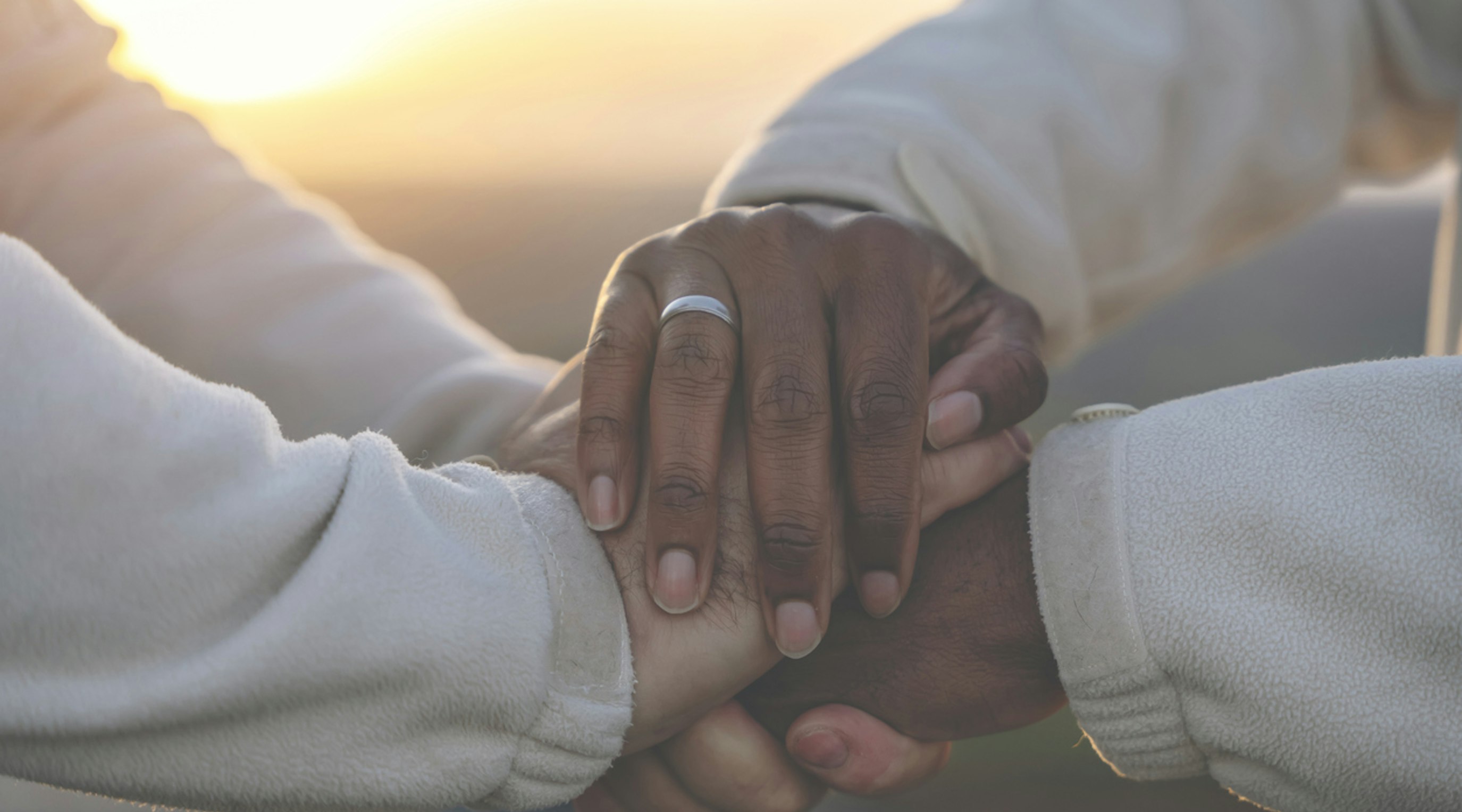The rise of alternative options: Being kinder to your body
6 min read
Emily Ledger
Being kind can mean a lot of things to a lot of people. It can mean taking out your elderly neighbour’s bins every week or going out of your way to make a loved one - or even a stranger - feel appreciated. But it can also mean taking care of yourself by making considered choices for a healthier and more well-rounded life.
In honour of World Kindness Day 2024, we’re exploring ways to be kind to your body, with a particular focus on alternative and holistic approaches to health and wellness.
Contents
What is World Kindness Day?
Falling on the same day as Kindness Day UK, World Kindness Day is a global celebration designed to promote kindness in all forms. It offers the opportunity to perform and highlight good deeds in the community, and bridge the gap between the things that so often divide us, whether that be politics, age, race, or religion.
Who started World Kindness Day?
World Kindness Day was launched in 1998 by the World Kindness Movement (WKM), a non-profit organisation that aims to make the world a kinder place.
Established in 1997 at a conference in Tokyo, Japan, the WKM has no religious, political, or commercial ties and is headed by 27 representatives from all over the world.
When is World Kindness Day?
The event is now celebrated annually on the 13th of November.
The link between kindness and health
When you think of kindness, you may think of small deeds such as making your coworkers a cup of tea, supporting a friend through a tough time, or perhaps even volunteering for a worthy cause. And while these things are all indeed acts of kindness that help to make our communities and the world in general a better place, we often overlook the importance of being kind to ourselves.
But the fact is, being kind can have significant implications on health. For example, checking in on your friends and family can help them to process and seek help for any mental health struggles they may be experiencing. Of course, being kind to yourself isn’t always as easy as it seems - but prioritising your mental and physical health can be a good place to start, so why not ‘check in’ with yourself?
Taking a holistic approach to health
There are a huge number of things you can do to be kinder to your body. You may choose to cut back on alcohol or quit smoking, or you might start to eat more healthily or do more exercise - all of which can significantly improve your overall physical and mental health. Many are now also choosing to seek out gentler, more natural therapies for physical and mental complaints that may offer additional benefits - particularly those living with chronic health conditions.
Holistic health is an approach to health and wellness that considers the physical, mental, emotional, and spiritual needs of the individual. Holistic treatment can include a combination of conventional medicines, psychological therapies, and alternative treatments to treat a condition or disease.
Changing attitudes to alternative treatments
In recent years, interest in alternative and holistic therapies has been on the rise in the UK and beyond. According to a survey of 4,862 respondents in England, the number of people using practitioner-led complementary and alternative medicine rose from 12% in 2005 to 16% in 2015. This included therapies such as acupuncture, massage therapy, osteopathy, and chiropractic treatment, as well as yoga, reflexology, mindfulness, and meditation.
So, let’s take a closer look at some of the potential health benefits of alternative medicine and therapies such as those mentioned above.
Mindfulness
Mindfulness refers to a state of being aware of your thoughts and mental and physical feelings. Practising mindfulness encourages us to face hardships head-on instead of sweeping them under the rug. As clinical psychologist and mindfulness expert, Professor Shauna Shapiro puts it: “Mindfulness is intentionally paying attention with kindness.”
Some evidence indicates that practising mindfulness may be associated with higher levels of life satisfaction, self-esteem, and optimism, among other positive outcomes, as well as a lower risk of depression, neuroticism, social anxiety, and several other psychological symptoms.
Acupuncture
Acupuncture is an ancient medical treatment that dates back over 2,000 years. It involves inserting fine needles into specific points on the body which stimulate sensory nerves under the skin and in muscles. It is widely practised in GP practices as well as in most pain clinics in the UK.
Currently, the National Institute of Health and Care Excellence (NICE) recommends acupuncture as a treatment for chronic pain, chronic tension-type headaches, migraines, prostatitis symptoms, and hiccups. However, it is also often used to treat a wide range of conditions and symptoms.
What about medical cannabis?
Medical cannabis has been used for thousands of years in the treatment of a huge range of physical and mental ailments. After a long period of prohibition, cannabis-based medicines can now be prescribed in the UK for many of these indications, including epilepsy, anxiety, chronic pain, and post-traumatic stress disorder.
For many patients, medical cannabis is a more attractive alternative to conventional pharmaceutical medications which may be associated with undesirable side effects, or simply not be effective at managing symptoms. Several studies have shown that medical cannabis patients prefer this class of medicines over other prescription drugs, with many able to stop or reduce their use of other medications.
Final thoughts
There are many ways we can be kind to our own bodies. We can appreciate our bodies for what they are and what they do for us every day. We can help to keep our bodies working as they should by feeding them the right foods and avoiding harmful products. And we can take a gentle and more natural approach to some aspects of our health.
So, happy World Kindness Day! Let’s all take this chance to spread love and kindness to others and, just as importantly, to ourselves.
*To find out more about the holistic treatment plans offered at Releaf, head over to our How it Works page.
Share article
Did you like this article?
It is important to seek medical advice before starting any new treatments. The patient advisors at Releaf are available to provide expert advice and support. Alternatively, click here to book a consultation with one of our specialist doctors.
Elevate your wellness with medical cannabis
Get comprehensive care, convenience, and confidence with an all-in-one treatment plan.
Am I eligible?Authors
Emily, an accomplished content writer with a specialisation in cannabis and alternative health, leverages her five years in the sector to enhance education and diminish stigma around medicinal cannabis use.
Editorial Policy
All of our articles are written by medical cannabis experts, guided by strict sourcing guidelines, and reference peer-reviewed studies and credible academic research. Our expert clinical team and compliance specialists provide valuable insights to ensure accuracy when required. Learn more in our editorial policy.
Need more help?










